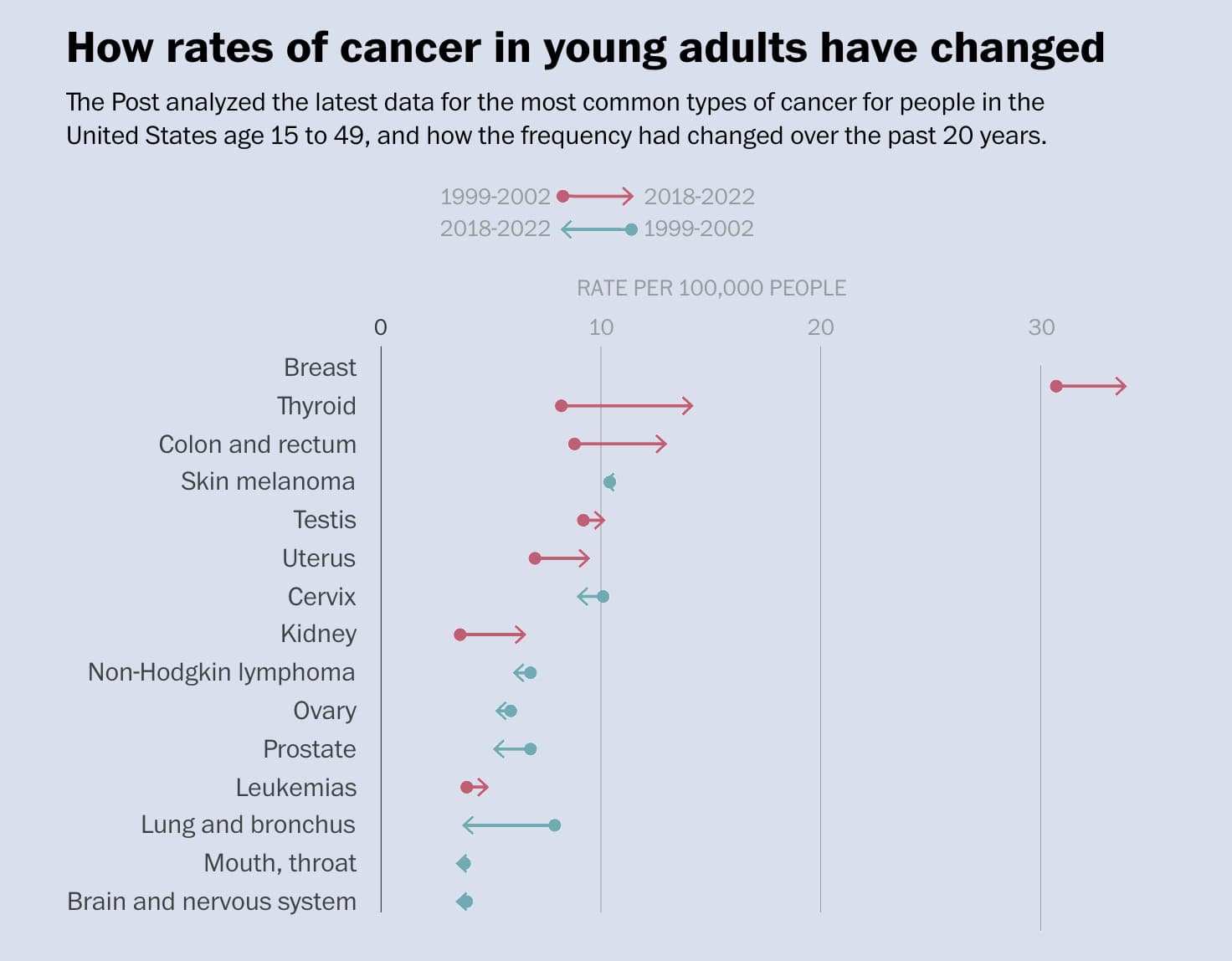Last year, researchers released findings from a 150,000-person study at the annual American Association for Cancer Research meeting that took the cancer community by surprise. They found that millennials — born between 1981 and 1996 — appear to be aging biologically faster than previous generations, based on biomarkers in blood that indicate the health of various organs. That acceleration was associated with a significantly increased risk — up to 42 percent — for certain cancers, especially those of the lung, gastrointestinal tract and uterus.
Much of the work in this area is in its early stages and has not proved a direct cause and effect in humans. The evidence comes from epidemiological studies, which look at patterns of disease in large populations; observational studies, which track people’s behaviors and exposures without intervening; and animal models which are sometimes, but not always, good proxies for people. Such research is difficult to interpret and especially prone to overstatement or misreading of the data.
Researchers say the surge in cancer cases among young adults reflects a deeper trend in human health: A number of major diseases, from heart disease to Alzheimer’s disease, aren’t just being detected earlier — they’re actually starting earlier in life.
“This is not just about cancer,” said Yin Cao, an associate professor of surgery at the Washington University School of Medicine in St. Louis whose team led the accelerated aging study. “This is a universal problem across different diseases.”
…
Andrew Chan, a gastroenterologist at Massachusetts General Hospital and professor of medicine at Harvard Medical School, is co-lead of a global research initiative launched in 2024 to investigate the surge in colon cancer among young adults. In May, his team presented early findings suggesting a troubling link. Individuals under 50 who consumed the largest quantities of ultra-processed foods faced a 1.5-fold increased risk of developing early-onset colon tumors.
Scientists are examining a variety of ways these products could possibly cause cancer: chronic inflammation caused by additives, the disruption of gut microbiota by emulsifiers, carcinogenic compounds formed during high-heat cooking and changes to hormones from excess sugar and carbohydrates. Even packaging might play a role, because leaching chemicals, particularly when heated, from plastics may disrupt the balance of hormones in the body.
Full story: What researchers suspect may be fueling cancer among millennials (WaPo)
